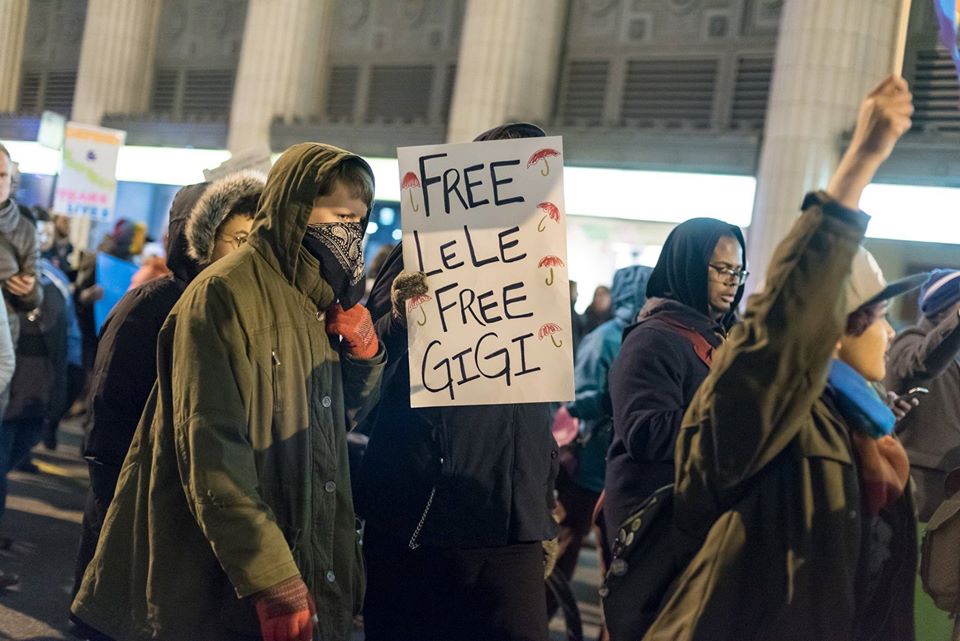
by Alisha Walker and Red Schulte (written by Red, with editing and considerable input from Alisha)
Alisha Walker is a 27-year-old former sex working person originally from Akron, Ohio. She was criminalized for an act of self-defense when a regular client threatened her life and the life of a fellow worker in January 2014. A jury convicted her of second-degree murder,and Alisha was sentenced to 15 years in prison. She is currently incarcerated at Decatur Correctional Center in Decatur, Illinois.
As Alisha commented, “When [Judge] Obbish sentenced me to 15 years, he basically said that I should have died that night when my client attacked me. He basically said that my life didn’t matter as much as that white man’s. My punishment is another example of the racist and whorephobic violence of the police, courts, and prisons.”
The violent combination of racism and whorephobia, coupled with her attacker Alan Filan’s familial connections to the Chicago political machine—specifically, Filan’s sister is a judge in Cook County and was very close with Judge James M. Obbish, who presided over Alisha’s case, and Filan’s brother is a famous Illinois lobbyist—are what Alisha attributes her harsh sentencing to.
The Support Ho(s)e Collective is a small Leftist formation of currrent and former sex workers and our trusted co-conspirators and accomplices based in Chicago and New York City. We founded and continue to coordinate the Justice for Alisha Walker Defense Campaign, supporting Alisha materially and advocating for her release. We’re currently a closed collective, meaning we don’t accept new membership. We’ve decided to remain closed until Alisha is free.
Inside/outside relationships are already fraught with surveillance, especially those relationships built on mutual aid and political organizing. Alisha and I are members of the Support Ho(s)e Collective. We’re also affiliated with Survived & Punished, Alisha as an inside survivor/organizer whose story has been uplifted, and I as an organizer with the NY formation. Alisha is in regular contact with the Uptown People’s Law Center, often encouraging others experiencing rampant sexual, medical, or gender-based discrimination inside to advocate for themselves alongside UPLC.
Alisha will be the first person to remind you that what happened to her is nothing new. She’ll be the first one to cite the long history of anti-sex worker stigma and criminalization. Early on when we talked about Mariame Kaba’s writings on Black women having “no self to defend” in this country, LeLe would light up with angry excitement. She’d exclaim, “Yeah, that’s exactly fucking right, they don’t want us to survive. But sometimes we do, and here I am.”
What follows is an accounting of conditions inside as Alisha and our other comrades have recounted them. We’ve pulled a selection of call summaries, video visits, and email correspondences to highlight what communication and organizing to meet Alisha and her community’s needs has been like since the pandemic hit.
**
Writing about surveillance experiences makes them real for people outside who’ve yet to be impacted by incarceration personally. We must detail the arbitrary cruelty of prisons and the mundane chaos that is always present in them, bearing down on our friends and comrades inside. Alisha’s ability to report to and communicate with outside organizers like myself and our fellow Support Ho(s)e comrades during this ongoing pandemic is essential. Alisha and I both believe that taking the lead from our most impacted community members—incarcerated people—during crises such as the COVID-19 pandemic will activate our networks to further our practices of mutual aid and care toward accessibility and freedom for us all.
Over the last two months, Alisha has used her allotted phone time to call us and give updates about herself, make sure we’re still alright out here, and update us on the prison’s ever-changing policy enforcements during the pandemic as well as the status of her entire unit. What has been consistent during these check-ins is uncertainty: uncertainty around the lack of precautions the prison is taking, about what this lockdown will bring, and how long we’ll all have to endure this pandemic moment.
“There’s no such thing as social distancing in prison.” Alisha begins and ends just about every call with this truth.
Our pandemic check-ins really began on Friday (March 13th). This was when Alisha was able to get word to us that Decatur Correctional Center was going on (what would be its first) pandemic) lockdown. All in-person visitation had been cancelled. Video visits were still tentatively going forward, but it was unclear if the GlobalTel Inmate Call (GTL) tech staff would be allowed into the prison for technical support and the administration of video visitation.
Alisha also mentioned during this call that Decatur’s GTL staff were working on installing a video visitation kiosk on the unit but no one had shared with the prisoners when it might be operational. Alisha also relayed that no one seemed to be sick yet, and that she and her friends on the on unit were being proactive and buying soap at commissary—the hand sanitizer they are offered at commissary has no alcohol content, which means it’s virtually ineffective.
By this point on the outside, the existing calls to “Free Them All” had multiplied, and new people were becoming activated and radicalized because of the public health crisis the pandemic posed. An email received from Alisha on March 14th informed us that all activities at the prison have been cancelled. This included all educational classes, contract work, certification courses, and their Shakespeare rehearsals. All that remained, for now, was “chow” and gym, but she also wrote that the COs had told them that those were the next activities to be cancelled. They were currently only being allowed two 20 minute phone calls a day.
On Wednesday, March 18th, Alisha and I had another check-in call. Her voice was bright and hopeful. Alisha let us know again that so far no one inside Decatur was sick or showing symptoms. Their commissary was still open; they were still able to go and shop for themselves, with soap still available for purchase (albeit at its typical exorbitant rate). Alisha’s tone shifted halfway through the call as she began to articulate her worries about her incarcerated family: “…because so many of them are immunocompromised and the ‘care’ we all receive inside here isn’t really care.” She was horrified by the news of some prisons, like the ones in New York, cutting off access to commissary and care-packages. She said, “We all rely on shopping to survive. How will they [those incarcerated in NY] survive without commissary?”
I told her about Survived & Punished NY’s expansion of our commissary giving along with other comrades to create a “Soap Brigade” and Abolitionist Mutual Aid Fund. She was ecstatic to hear this news, and expressed hope that it would catch on as an organizing trend. I assured her that it already had.
She also reported that regular phone use had been reinstated (though this would be short lived), and that gym and chow were still happening for now. Our video visits were still on, and she wanted to encourage everyone who didn’t already have a GTL account to set one up, as well as a Connect Network email, because people inside were feeling even more isolated without access to in-person visits while on lockdown.
Alisha said the prison was taking some precautions about the COs’ health, but she didn’t feel like it was enough to keep her safe. She had been following Illinois Gov. J.B. Pritzker’s public statements and efforts and was hopeful, but she also expressed that even when people get things right on the outside, people on the inside are the ones always left behind.
Alisha wanted to express support for the Chicago Community Bond Fund‘s actions and demands that everyone be released to prevent an outbreak at Cook County. She said, “Unless Cook County releases everyone, they’re condemning us in here to illness and likely death.” She was also very worried about friends and comrades at Logan Correctional—it was almost impossible to get word about their well-being.
Even though her Shakespeare theatre-troupe practice and her classes had been cancelled for now, she was practicing her lines, doing math problems, and working through her Introduction To Soil horticultural science text on her own time. She had gotten back into writing poetry and making art to process this new trauma of being trapped inside prison during a pandemic as well.
Those of us on the outside who are close to Alisha had already weathered her being put on “B Grade” with no access to email, phone calls (except for “legal calls” with lawyers), and video visits a few times before. We continue to endure retaliation from the mailroom COs who censor and lose her mail with abandon. We’ve been through so many versions of this communication breakdown and yet there are different fears and anxieties we’re holding because of this new contagion.
**
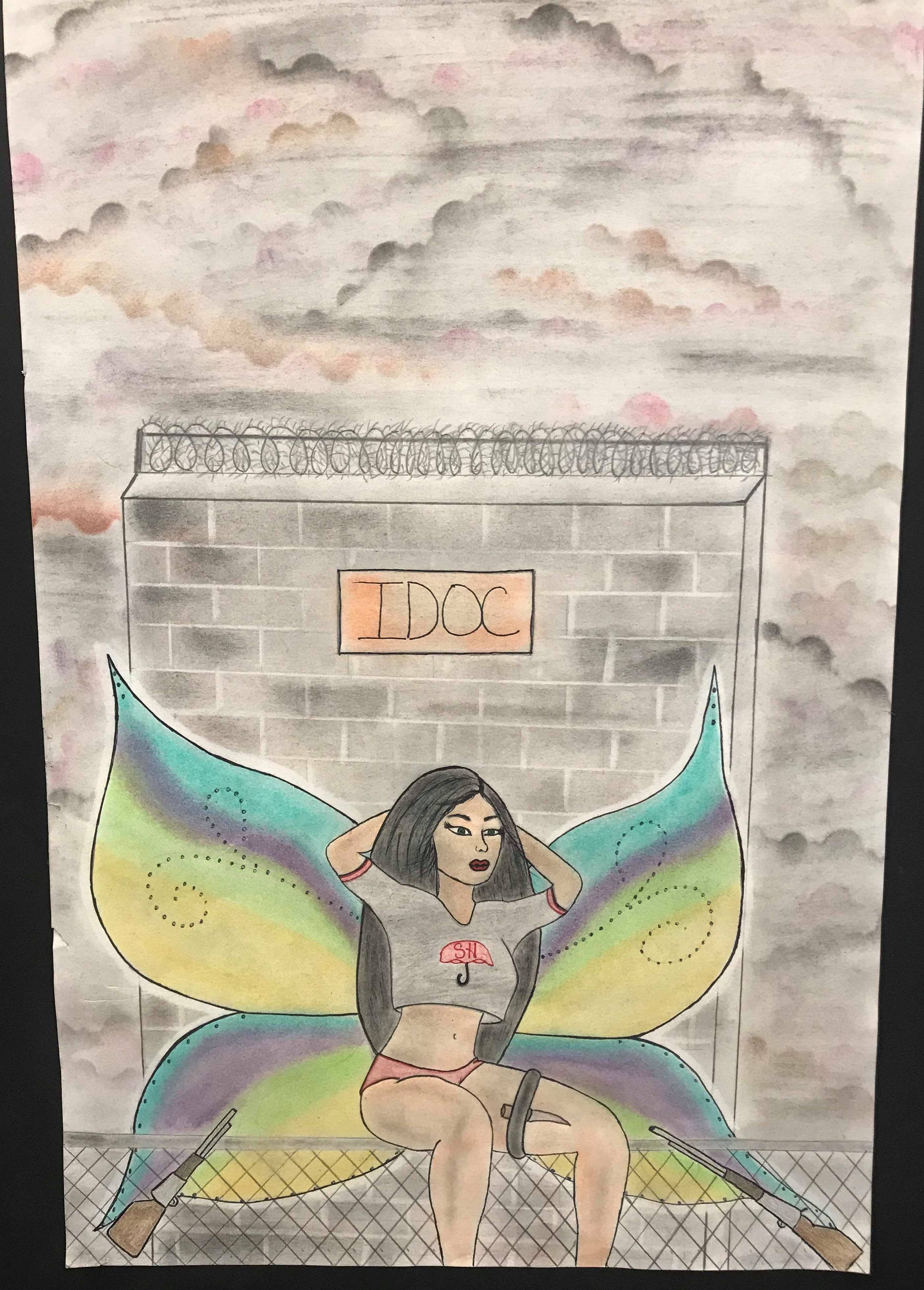
March 21st, Morning Call with Alisha
Decatur has implemented “administrative quarantine”, furthering their lockdown practices.
The incarcerated mothers with babies have been released. Many had nowhere to go. LeLe heard some had been sent to shelters and hotels but had no way of confirming this. She’s worried for them. She’s worried for herself and those left caged.
The prison is doing “half and half’s” based on odd and even room numbers, limiting who can leave their rooms to use phones, etc.
People are being confined to their unit. COs bring meals to people in cells on disposable trays. Limited access to gym is still being negotiated.
Email is down, completely. It stopped working on Friday. They’re getting server errors when trying to log onto tablets.
They received a notice last night about how the prison administration plans on handling this crisis that was vague. It promises “alternative programming for contracts and days” but doesn’t specify what or how.
The notice also stated that showers, GTL kiosks (video visits), commissary, and the law library would still be accessible.
There is bleach to clean the phones finally, though that cleaning labor has been put on the people inside.
Midway through the call LeLe said: “Social distancing. Psh. All they talk about is social distancing. How the fuck is that supposed to work in here? I’ve got people less than a foot away from me right now!”
She also spoke of her fear for her loved ones inside of other prisons. She sent us a few comrades to check back in on and ensure they were supported and heard. We heard back almost immediately from Lorena.
**
March 21st, Email Correspondence
Red received an email update from our comrade Lorena (a pseudonym), Alisha’s close friend, who was recently transferred from Decatur to Logan Correctional:
“So i am here on an immigration warrant, I was at work release and tried to fix my green card and it put a red flag out and got me a warrant.. My mom has a lawyer working on it right now..but it might take forever.. I heard Chicago is a sanctuary city or something, could you check? I’m in a drug treatment program so I’ll be out in October.. This place is so crazy.. I wish I could’ve gone back to Decatur… We are on full lockdown right now. We can’t do anything .. As for commissary, money is a lil tight…”
**
March 24th, Afternoon Call with Alisha
Alisha and many others inside elected to get flu shots that were being offered by Decatur yesterday.
Last night through this morning, Alisha and others she knows on unit, including a close friend, experienced mild to serious allergic reactions as a result of the shots. Alisha’s friend went into anaphylactic shock, unable to breathe, and was rushed to an outside hospital. Alisha does not know her friend’s current condition. After receiving her shot, Alisha experienced throat swelling and itchiness, overall body welts, and general discomfort. This is her first flu shot since being inside. She said the welts and pain are starting to subside, but her throat is still very itchy and swollen. No other medical support has been offered or extended to people inside managing these adverse side effects.
The new on-unit video visit GTL kiosk appears to be almost functional. LeLe saw them working on it this morning. She and others are excited for this because it likely means they won’t have to be strip searched and made to squat (which is typically required even for video visits) before using the kiosk on unit for visiting.
Alisha spoke about her love and solidarity for all those fighting for the release of incarcerated comrades, and she sent her strength to the incarcerated hunger strikers in California, New Jersey, New York, and Illinois.
**
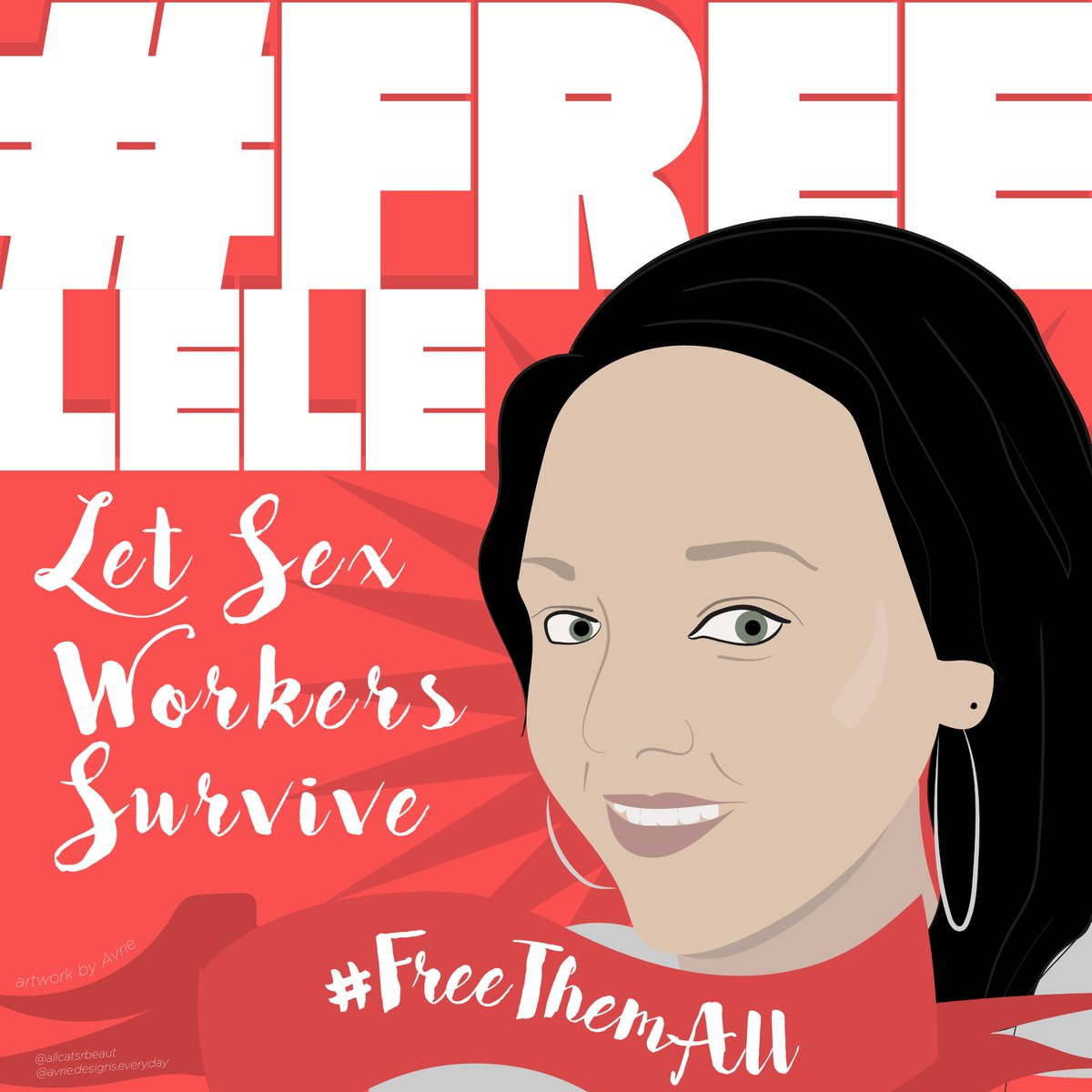
March 24th, Email Correspondence
Red received an update from Lorena after asking whether she wanted her story and conditions shared more broadly: “Yes please share everything.. I want to help when I’m out by advocating for women behind bars because they [the prison staff] treat us very badly!!! I’m so stressed about getting deported but it’s something that’s out of my control.. We still get fed and get showers..shopping [commissary] is on hold and phones are so crazy to get on without arguing..everyone is going crazy..”
**
March 25th, Morning Call with Alisha
The prison has begun instituting its version of social distancing—social distancing only outside of cells and bathrooms. Meaning, Alisha and her cellmates are literally sleeping next to one another, sharing the same bathroom with no increased access to cleaning supplies, and are less than a foot apart when using phones (though a watered down bleach bucket has been left for them to dose the phones with), and then being yelled at to stand 6 feet apart at chow and when walking around on unit. The absurdity of this is not lost on Alisha and me, or any of the others locked up with her. Only 50 people are allowed at chow at a time, because the prison ran out of styrofoam trays (for a few days in a row people were being served meals in cell).
**

March 25th, Afternoon Call with Alisha
“Without being able to talk to people outside, we don’t have a voice. That’s why communication is so important to us. Because injustice is gonna happen, we’re inside prison. If we can talk to people outside, then we have a better shot at preventing coverups.”
This is magnified now, Alisha says. Everyone wants to know what’s going on, bottlenecking the regular communication channels.
**
March 26th, Evening Call with Alisha
Alisha calls to ask if we’ve heard anything about rapid release in the press. Nothing, no word, no comments from IDOC either. I message Alan at UPLC to see if he’s heard anything. He said the prison admin won’t comment publicly or confirm that any releases are happening.
Alisha’s voice is interrupted by cheers and excited screams. Someone else is going home. She’s estimated over 25 people have been sent home today so far. More cheers.
Alisha expresses excitement for them, and also confesses frustration. She wants to go home too. What’s the pattern? How can we figure it out? No one knows anything and no one from the prison will share more information with them. The sound of the women in the background is so loud, it’s incredible. I can barely hear LeLe.
Alan asks us to go on record with a reporter from the Chicago Tribune, but we don’t speak to that publication anymore.
**
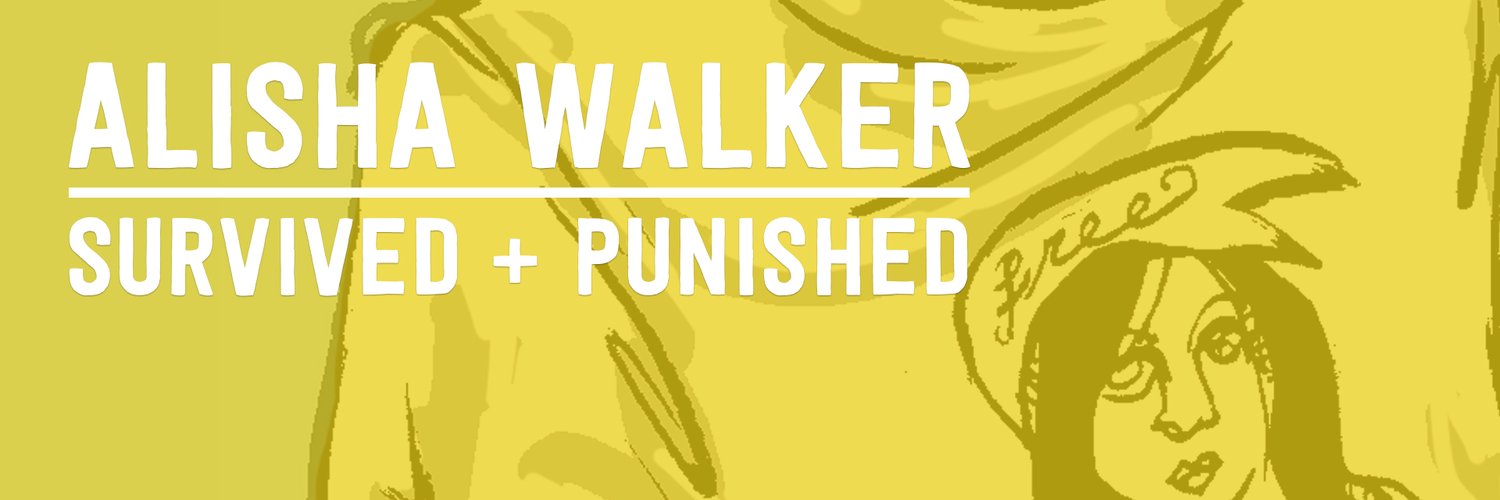
March 27th, Morning Call with Alisha
Alisha estimates 50-60 people have been sent home so far since Monday, at least 5 from her unit, H. Her best friend Tasha is being released right now. There’s no real rhyme or reason, but the people who go usually seem to have two years or less left on the books. Alisha is crying and very happy for her comrade. She is desperate for news, but no one knows anything else. I feel awful. I don’t have more insight on what’s happening. It’s being made up as the prison admin goes, it seems. Alan has no new word. My contact in the IL State House hasn’t returned my texts.
More cheers and screams in the background of the call. One woman found out she was going home because her family checked her IDOC inmate page and saw her release date had been bumped up.
No other communication or notice from the prison admin. They seemed to be just calling people up at random, sending for carts and releasing the same day.
“I’m really, I’m just at a loss for words. I don’t know what to say. I’m overjoyed for them [the comrades/fellow incarcerated people being released] but everything feels so uncertain for many of us.”
**
April 21st, Email Correspondence from Lorena
“if u only knew how they were really doing us.. We went w.o power for two days and nights due to a storm amd the warden always wants to have an officer sit on the wing wen we dont act right but not when the power was out for two nights to ensure our saftey goin to the bathrooms.. Our bathrooms flooded two diff times w feces n they gave us a bottle of bleech and two mop heads no mask or gloves to clean it.. We have not been gettin cleanin supplies for our rooms.. We have been eating sausage patties for bfast lucnh n dinnefor weeks.. Grl all types of shit… I appreciat all u guys r doin we all do..u dont know how much it really means to us!!!!”
**
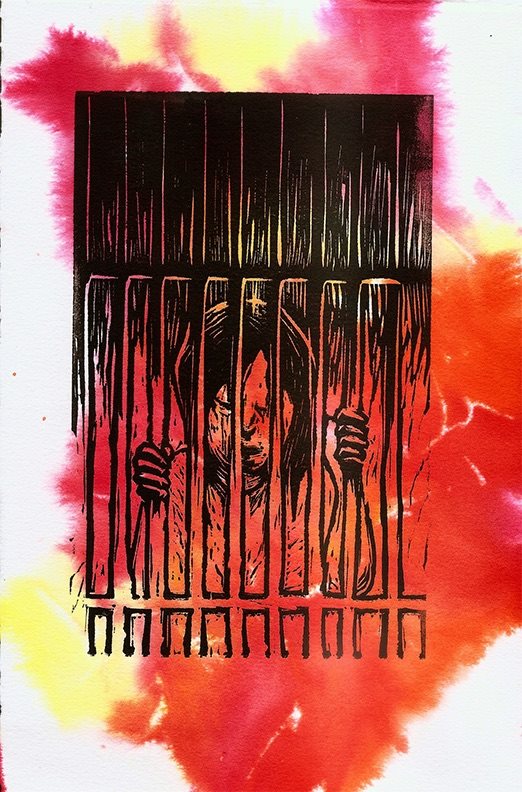
By this time, Alisha has to wait in long lines for the phones daily. Our check-ins via phone have to necessarily come every other day because of this. We’re over a month into these new punishment procedures the prison has implemented and have experienced new levels of bad wifi and inaudible audio. Our calls ranged from twice a day last month, to every other day, to weekly video visits interspersed among calls.
But as of the end of April, things have changed for the worse, again. Myself and a fellow SxHx organizer got word from Alisha last night (April 28th) that Decatur had put itself on “Level 1 Lockdown.” As of a few minutes ago we still believed she’d be able to leave her cell for scheduled video visits. However, an email she sent early this (April 29th) afternoon that just posted notified Red that all video visits are being suspended until further notice.
LeLe no longer has regular access to phone use or to showers—the COs are instituting a policy of only one person at a time being allowed to use them. She and her cellmates are being confined to their room for the entire day, a room she shares with 3 other people, who share a toilet with another 4 people on top of that. As of today, chow is being delivered again on trays directly to rooms.
She wrote in the email that “they [COs] are now wearing gowns and placed hazard trash by each of our doors, and now they say there is no cases here… But since that girl had a fever they went through all this… So i think they are lying. And just wont tell us whats happening.”
This is what we’ve come to expect—the only thing constant about correspondence with a loved one inside is the inconsistency of expectation. As of Saturday, May 2nd, things have shifted, slightly, yet again. Alisha called with another update. Each incarcerated person inside Decatur has been given one (and only one) “medical grade” mask with their name and ID number written across the front of it in sharpie, so all they can smell are the marker fumes. She mentioned that the COs have stopped wearing gowns and the purple “rain coats” today, and are just wearing masks and gloves. She also thinks they’re going to start allowing video visits again, and wants to test the waters by rescheduling the ones that were canceled this past week for next week.
As we move further into May, there’s on one hand the same threatening level of uncertainty that’s been with us since the pandemic (or as Alisha calls it over the phone, “this crazy shit”) hit, and on the other, a new level of increased mutual aid response from people outside of our normal periphery of comrades. New people are writing to Support Ho(s)e online asking about how to support Alisha and our other comrades both inside and out here on the other side of the wall. We had to develop a quick reference guide because of the demand. We’ve gotten creative by partnering more with trusted accomplices like Survived & Punished and Bluestockings Books, participating in webinars and teach-ins about our organizing work and about Alisha’s resistance art.
We’re preparing for best and worst case scenarios—in that regard, very little has changed. We’re doing our damnedest to reduce harm for each other where we can. Our friendship and comradeship has been forged by patient trust-building and managing each other’s expectations and needs. This pandemic is yet another horrifying worst case scenario. It exists on top of Alisha’s incarceration being its own terror and the assault on her life being another. And of course, all of this exists in the context of our belief that prisons have been the pandemic all along. A virus doesn’t concern itself with the host it infects and may kill, just as carceral systems refuse to recognize the humanity of those they touch.
If you would like to support Alisha and her community inside, please refer to the aforementioned resource guide on the campaign to free her.
4 comments